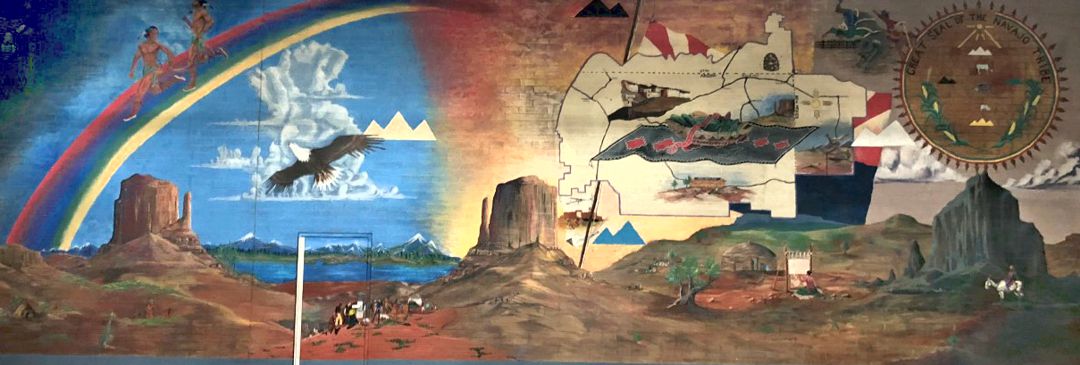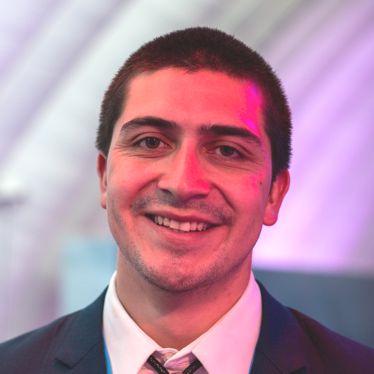
 Impact Humanity: Episode 1, Hailing from the Southwest, Michael has developed a love for the world through many years of exploring Mother Earth’s beauty, respecting her gifts, and interacting with cultures across the globe. He is Diné, from the Navajo Nation, and has lived across the country pursuing his interests in academia. Currently, he is a National Science Foundation Graduate Research Fellow working on his Ph.D. in chemical engineering at The Ohio State University. His research focuses on sustainable process design and explores how ecological systems can be included into technological design and decision-making to expand the boundaries of traditional engineering.
Impact Humanity: Episode 1, Hailing from the Southwest, Michael has developed a love for the world through many years of exploring Mother Earth’s beauty, respecting her gifts, and interacting with cultures across the globe. He is Diné, from the Navajo Nation, and has lived across the country pursuing his interests in academia. Currently, he is a National Science Foundation Graduate Research Fellow working on his Ph.D. in chemical engineering at The Ohio State University. His research focuses on sustainable process design and explores how ecological systems can be included into technological design and decision-making to expand the boundaries of traditional engineering.
Michael has also worked at the UN Climate Negotiations (COP) the past few years and focuses on indigenous issues, working with the International Indigenous Peoples’ Forum on Climate Change (IIPFCC). He recently co-led the first US indigenous youth delegation to these negotiations in Madrid, Spain with SustainUS. SustainUS is a youth-led organization advancing justice and sustainability by empowering young people to engage in advocacy at the domestic and international levels. In 2018, he was recognized with a Dreamstarter Grant from Running Strong for American Indian Youth to work on higher education accessibility issues for Navajo high schoolers living on the reservation and was also named a Movement Builders Fellow by the Center for Native American Youth (CNAY) in 2018. In 2019, he was selected as a Cultural Preservation Ambassador in addressing human trafficking in Native communities and bringing broader awareness to missing and murdered indigenous women (MMIW).
His work has been featured by Teen Vogue, REI Co-op Journal, Intel’s blog, and several podcasts. Although his interests and advocacy transcend many disciplines and labels, most of his work is focused in increasing indigenous representation in climate activism, politics, and higher education in the pursuit of justice and collective liberation.
SUPPORT THE CREATION OF PODCASTS LIKE THIS ONE: BECOME A MEMBER TODAY!
Let me introduce myself. Ya’at’eeh shik’ei doo shidine’e shi ei Michael Charles yinishyeh. bilaganna nishli, ashiihii ba shishchiin, bilaganna dashichei, aadoo nakai dine’e dashinali. My name is Michael and I am Dine, or more familiarly Navajo, and I spend a lot of my time and energy fighting for recognition of indigenous rights, especially in the lens of climate change. Through my work I am connected to a global indigenous family where I have brothers and sisters, aunties and uncles throughout the Amazon, throughout the tundra and the Arctic, from communities across the mighty continent of Africa to relatives throughout the mountains of Asia, to those relatives who live on the ocean shores and throughout the islands of the Pacific and of course my family across Turtle Island, or North America. What I’ve learned from all my indigenous relatives who show up to protect their lands, protect their peoples, and protect each other is that we are powerful. I also have been fortunate to organize across the United States with an organization that focuses on youth-led movements, fighting for climate justice through storytelling and action. I have met hundreds if not thousands of individuals through this work – some who are just now learning what it means to take a stand to protect our Mother Earth and fight injustice in today’s society, some who are elders who have practiced and carried the traditional knowledge of their people for decades, some who are bold and creative artists leading actions in the streets, and some who are veterans in international policy whom I work with in the halls of the UN. I’ve learned that as human beings, indigenous or not, we are powerful individually and we are even more powerful as communities.
However, this work can be heavy and can really take a toll on one’s wellbeing. When we talk about climate change, we often talk about the future which brings uncertainty and fear… as if today’s news isn’t scary enough. The impacts of climate change are already here. If we choose to pay attention, there seems to be a new catastrophe almost every week. And these catastrophes are not just climate related. The world can be dark and full of racism, hatred, violence, hunger, disease and there’s no rulebook for how to tackle these injustices, especially all at once. To make matters worse, depending on who you are and where you come from, you walk with even more fear every day. Whether it’s your skin color, your gender, your sexuality, a disability, your income, your culture, or something else – this fear is real. With so much darkness and injustice, it is easy to feel hopeless in this world.
Join Michael to discover three guiding principles rooted in his experiences with his culture, with indigenous-led movements, other indigenous cultures, and lessons Michael has learned from his relatives from all walks of life across the world. These lessons are meant to be reflected on by anyone who is interested in being involved in social movements, social change, and collectively fighting for a better world, a beautiful world – a world where Black Lives Matter, a world where we understand Mni Wiconi or Water is Life, a world where we’ve reimagined systems of relationship and governance so that systemic racism and oppression begins to heal, a world where our spirits have truly learned to empathize with each other and the world around us, a world in balance with the ecosystems to which we belong, a world that we all wake up in, look east, and see beauty with each sunrise.
GET INFORMED!
- Learn more about Michael Charles and connect with him on Twitter
- Discover more about SustainUS and engage with them on Facebook and Twitter